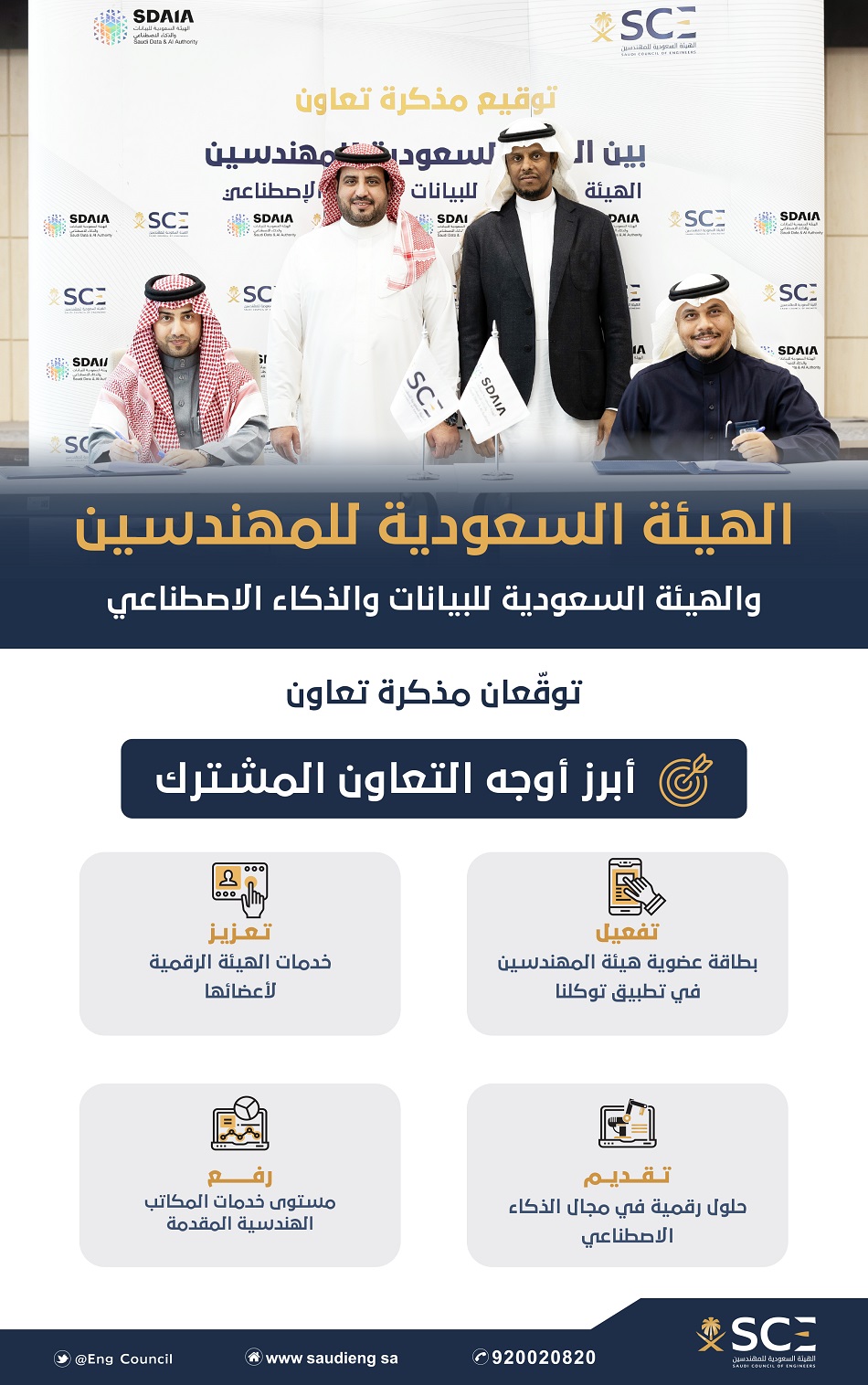The Saudi Engineers Authority has signed a memorandum of understanding with the Saudi Data and Artificial Intelligence Authority, SDAIA, aimed at creating a high-quality and reliable digital environment that contributes to enhancing the digital experience of beneficiaries in the engineering sector, in line with the objectives of the Engineers Authority, which align with Vision 2030 for the engineering sector.
Representing SDAIA was Abdulaziz bin Mohammed Al-Najim, Deputy Assistant Director of the National Information Center for the Tawakkalna System, while Bandar bin Abdullah Al-Qahtani, Director General of Shared Services, represented the Engineers Authority.
This memorandum comes within the framework of the main tasks of SDAIA concerning data and artificial intelligence, as well as its role as a technical enabler for government entities to enhance their pioneering role in accelerating the pace of digital government transformation in the Kingdom of Saudi Arabia over the coming years, aiming to achieve the objectives of the Kingdom's Vision 2030.
Through this memorandum, the Saudi Engineers Authority aims to enhance its cooperation with government entities in the fields of innovation and technology to provide innovative and secure solutions that contribute to the development of the engineering sector in the Kingdom. Additionally, it seeks to enhance the utilization of data and artificial intelligence in the programs, initiatives, and services it offers to its members, including engineers, technicians, specialists, and students of engineering disciplines, as well as the engineering offices and companies accredited by the authority.
The memorandum of understanding aims to establish a general framework for cooperation between the two parties in several key areas, including: enabling the service of viewing the professional accreditation card issued by the Saudi Engineers Authority through the Tawakkalna Services application, exploring avenues of cooperation in data, developing modern technologies, and electronic services to facilitate the beneficiary experience, as well as investigating the possibility of benefiting from data and integration services in the fields of artificial intelligence. This will contribute to improving and raising the quality of engineering services provided to beneficiaries, including individuals, companies, and engineering offices.
